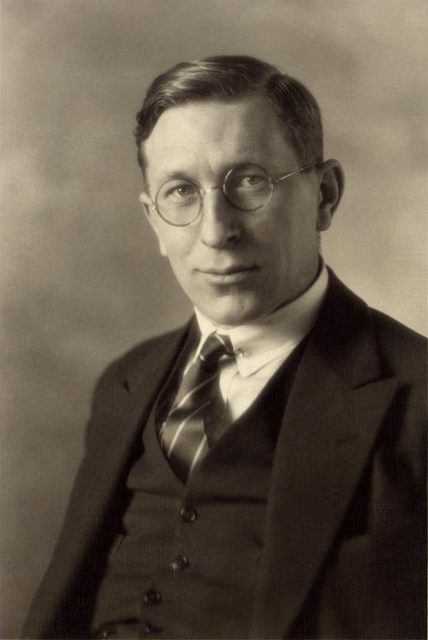FREDERCK G. BANTING MEMORIAL AWARD
Sir Frederick Grant Banting KBE MC FRS FRSC (November 14, 1891 – February 21, 1941) was a Canadian medical scientist, physician, painter, and Nobel laureate noted as the co-discoverer of insulin and its therapeutic potential.
In 1923, Banting and John James Rickard Macleod received the Nobel Prize in Medicine. Banting shared the honours and award money with his colleague, Charles Best. As of November 2018, Banting, who received the Nobel Prize at age 32, remains the youngest Nobel laureate in the area of Physiology/Medicine. That same year, the Government of Canada granted Banting a lifetime annuity to continue his work. In 1934, he was knighted by King George V.
An article he read about the pancreas piqued Banting's interest in diabetes. Banting had to give a talk on the pancreas to one of his classes at the University of Western Ontario on November 1, 1920, and he was therefore reading reports that other scientists had written.:51–52 Research by Naunyn, Minkowski, Opie, Sharpey-Schafer, and others suggested that diabetes resulted from a lack of a protein hormone secreted by the islets of Langerhans in the pancreas. Schafer had named this putative hormone "insulin". The hormone was thought to control the metabolism of sugar; its lack led to an increase of sugar in the blood which was then excreted in urine. Attempts to extract insulin from ground-up pancreas cells were unsuccessful, likely because of the destruction of the insulin by the proteolysis enzyme of the pancreas. The challenge was to find a way to extract insulin from the pancreas prior to its destruction.
Moses Barron published an article in 1920 which described experimental closure of the pancreatic duct by ligature; this further influenced Banting's thinking. The procedure caused deterioration of the cells of the pancreas that secrete trypsin which breaks down insulin, but it left the islets of Langerhans intact. Banting realized that this procedure would destroy the trypsin-secreting cells but not the insulin. Once the trypsin-secreting cells had died, insulin could be extracted from the islets of Langerhans. Banting discussed this approach with J. J. R. Macleod, Professor of Physiology at the University of Toronto. Macleod provided experimental facilities and the assistance of one of his students, Charles Best. Banting and Best, with the assistance of biochemist James Collip, began the production of insulin by this means.
As the experiments proceeded, the required quantities could no longer be obtained by performing surgery on living dogs. In November 1921, Banting hit upon the idea of obtaining insulin from the fetal pancreas. He removed the pancreases from fetal calves at a William Davies slaughterhouse and found the extracts to be just as potent as those extracted from the dog pancreases. By December 1921, he had also succeeded in extracting insulin from the adult pancreas. Pork and beef would remain the primary commercial sources of insulin until they were replaced by genetically-engineered bacteria in the late 20th century. In spring of 1922, Banting established a private practice in Toronto and began to treat diabetic patients. His first American patient was Elizabeth Hughes Gossett, daughter of U.S. Secretary of State Charles Evans Hughes.
We would like to dedicate this 5th World Congress on Diabetes and Endocrinology - 2023 after his name.
Eligibility
- Senior Scientists or Researcher e.g. HOD, Professor. etc. are the focus of this event.
- The topic must fit into scientific sessions of the conference.
- Each individual participant is allowed to submit only one paper (as first author or co-author).
- All authors should have senior position or faculty position.
- Participants should be above the age of 50 years.
- All submissions must be in English.
- Actively distribute information and promote the benefits of education and career matters.
Criteria for Selection
- Showcase your research through oral presentations and its impact to the Panel Member.
- Impact of the Research Work.
- Importance of the Research work to the socity.
- New Innovation in the Research Work
Awards & Rewards
- The top 2 nominee will be awarded with Frederick G. Banting Memorial Award at the end of the conference.
For Nomination Kindly write a mail to the Conference Secretariat at
[email protected] and kindly attached the below mentioned documents.
- Brief CV(Kindly mention atleast 2 reference)
- Abstact for his/her speeh during the summit.
- Last 2 Publication Research Work
- 1 Copy of HD Photograph
